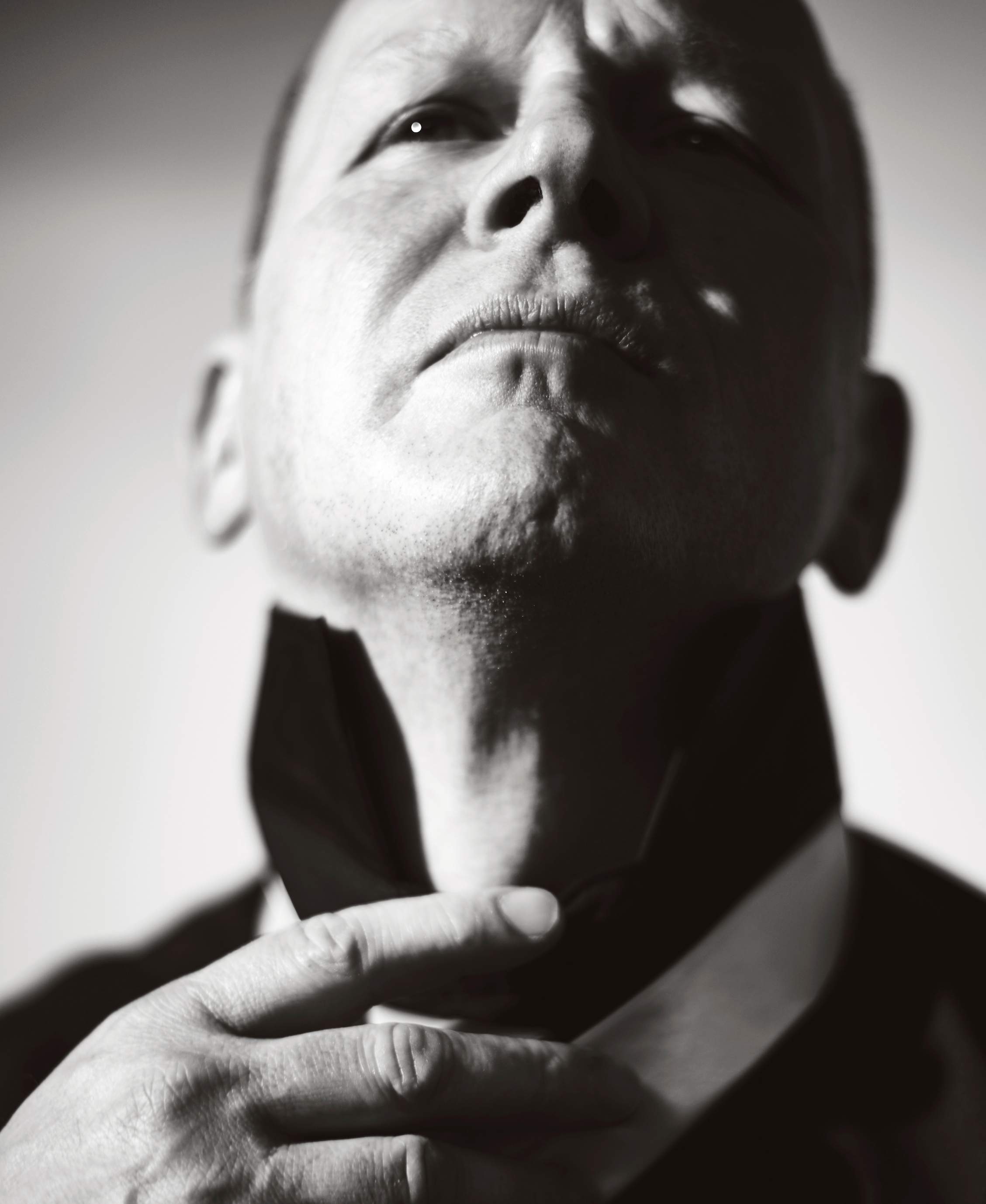
It’s not often you get to talk to someone who’s had a number one single and double platinum album, had a song covered by David Bowie and who also just happens to be a fully qualified psychotherapist.
So it was with some degree of trepidation I picked up the ‘phone to chat with Mark Nevin about his new solo album My Unfashionable Opinion.
I needn’t have worried, Mark is one of the most relaxed and down ro earth artists I’ve ever had the fortune to speak to.
Easy going and quick to laugh, he’s in good spirits, buoyed by positive reviews of the album and its jubilant live launch at St Pancras Old Church in London (see video below).
Blooming with pride about the backing band he calls his family, he’s ebullient and poetic about what he describes as the “magic” of songwriting.
Over the course of a wide-ranging interview, he speaks with moving honesty about his struggle to cope with the sudden and dramatic fame of Fairground Attraction, his “bonkers” time working with Morrissey and getting “out of his tree” with Kirsty MacColl.
Oh and then there’s the time he wrote a song with Ringo Starr and attended the recording presided over by a certain George Martin.
But we begin with his idol, Bowie, who recorded the Nevin-Morrissey composition I know It’s Gonna Happen Someday in 1993, and whose tragic death last year helped provide the motivation for Mark’s new album.
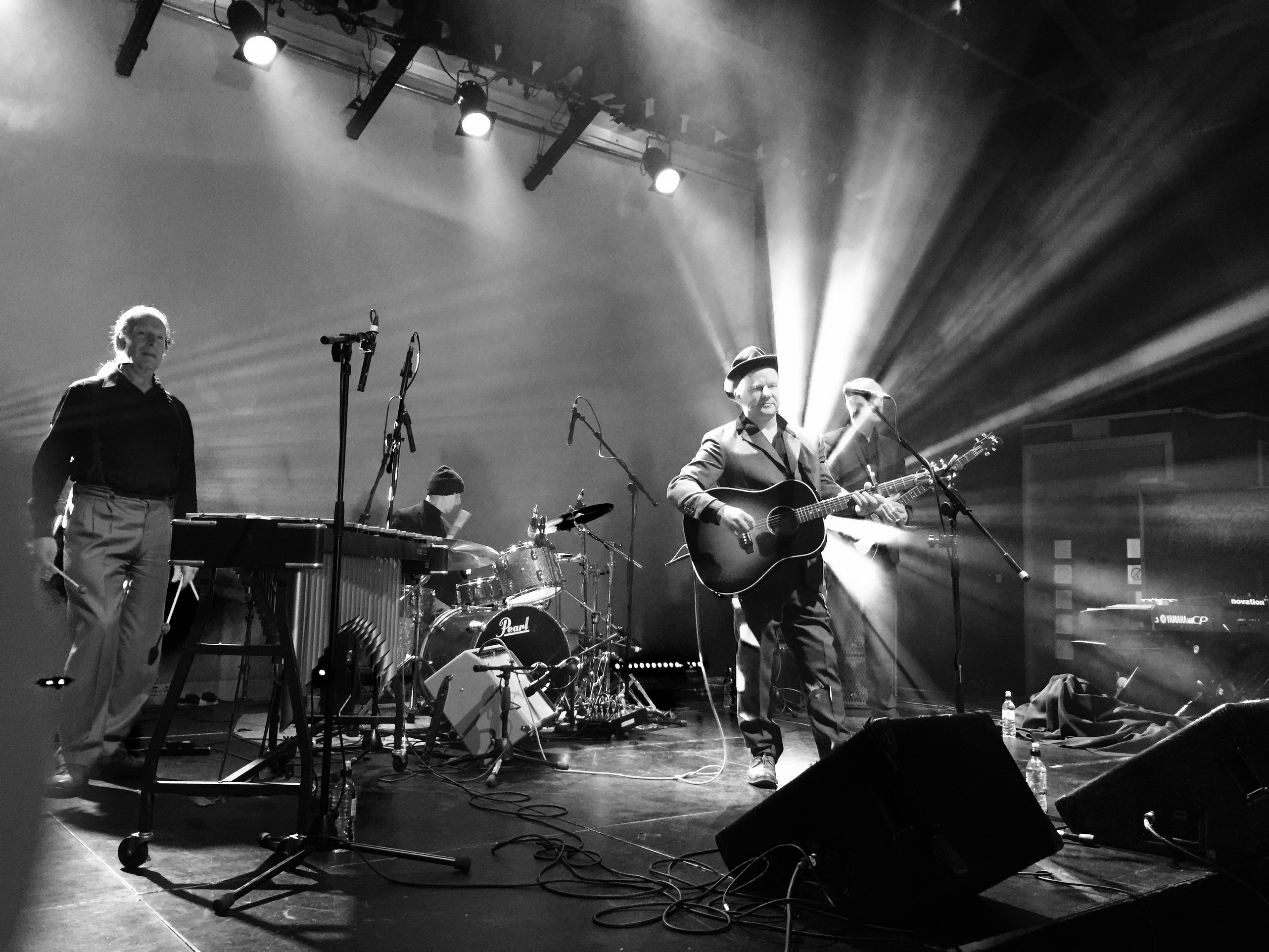
Tell me a bit about what inspired the album – My Unfashionable Opinion sounds like a bit of a statement of intent?
David Bowie dying was a big part of it. He was such an important person to me growing up. The reason why I bought a guitar in the first place really – so when he died, I think, like a lot of people of my generation, I was really saddened. Up to that point, I used to worry that one day I’d run out of songs, or run out of ideas and then it just became apparent I was more likely to run out of time. Like Bowie did, he was writing like crazy – in that video at the end with Lazarus, he’s just writing, writing, writing, because he knows he’s going to go. And I thought: “Wow! Maybe I should do that now – rather than the day before I die”. So that was a big impetus to really get the energy going. And getting out with my band and for the first time really enjoying my position at the centre of the stage. It’s taken me a long time to feel comfortable there and not really feel like I was pretending. So stepping up to that was a real part of it.
There seems to be a quiet defiance about the lyrics – is that fair to say?
Absolutely yeah! If you come and see my show that is definitely the theme – joyful defiance. When I was a kid no-one said: “Oh go and be a songwriter”, they said exactly the opposite: “You can’t do that! – that’s not a job”. Then when I started singing my publisher said: “Oh you’re committing career suicide”. Everyone’s told me I can’t do what I’ve done – all my life! So I keep doing exactly what I want, whatever they say, in fact I’m more inclined to do something they tell me not to do. It’s part of the fun.
How did the album launch show go?
It was absolutely amazing actually, because we had the Kick Horns with us, so it was 10-piece band, which we’ve never had before and it was just thrilling with that huge brass section – it was just awesome and it went down a storm – it was packed – so we really feel like we’ve properly launched it now.
Is performing live a real joy for you these days?
It is now, it really is. Everything seems to have gone up a big notch and because I’m doing what I thought was impossible, which is singing and making my own records, performing them and having a really fantastic response to them, I think it’s like: “Wow! It’s all becoming real now!” It’s very exciting.
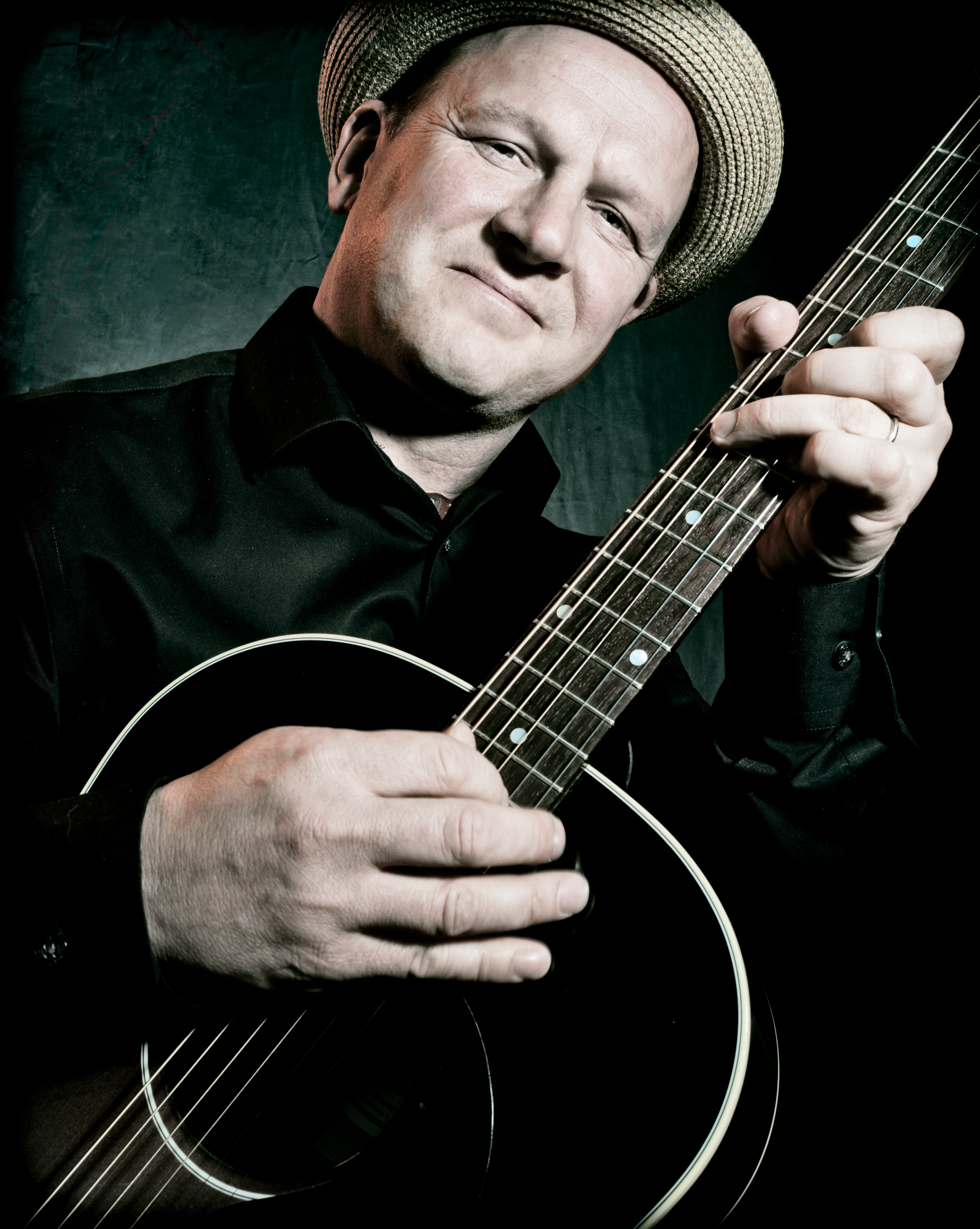
Do you feel more confident as a solo artist now with five albums under your belt?
Completely. At first you think you’re having a go at this, or something, people don’t really take it seriously. For years people have been asking (does whiny journalist impression) “Will you get Fairground Attraction back together?”- that seems to be a thing of the past now. It’s not something I would ever do and people are seeing that THIS is what I do.
When you first started out as a singer was it a completely new thing for you?
Well, the thing is, my dad was Welsh and he liked Mario Lanza and Harry Secombe and that’s what you were supposed to sing like and if you didn’t sing like that you couldn’t sing and you SHOULDN’T sing. So I didn’t – and when I wrote songs I looked for singers who were ‘proper’ singers – people who my dad would approve of (chuckles). But most of the records I like are by people like Neil Young and Bob Dylan, Lou Reed and Leonard Cohen – they are all rubbish singers! So it’s been a long journey to really stand in this position, so I believe it and own it.
You said you admired Lou Reed – were you one of the people who formed a band after listening to The Velvet Underground and Nico?
Yeah definitely. The one that I really love is Live at Max’s Kansas City – I love that! I loved all the talking in between {adopts Noo Yawk accent}. “Is that Pernod? Give it me immediately” – all that stuff! I actually spent the evening with Nico once, because when I was with Sandie Shaw I think they had the same tour manager. I remember being in Stoke Newington sitting on the sofa up there with Nico thinking: “This is pretty surreal”.
Can you see yourself ever writing for another singer again?
Well a lot of people that I would have done it for are dead (laughs). And I never actually wrote for people anyway. I always wrote songs for myself and people sung them. I think if you start writing for someone you are putting the cart before the horse. I think that’s the trouble with so much pop music is that record companies go: ‘I’ve got this singer, all we need now is some talent, so let’s get a songwriter and producer and polish this into a handsome beast so that we can fool people into thinking this is a real artist.” It’s backwards, it’s bonkers. So not really. I used to love Roberta Flack and if she did one of my songs, I’d be utterly delighted, or Aretha Franklin people like that, but it’s not really what I do anymore.
You took a nine-year break to train as a psychotherapist – what prompted that move?
Well partly because I didn’t really know how to go forward as a songwriter at that point. I’d made two solo albums, which had been breath-taking commercial failures. They’d cost a lot of money to make and I thought what is the point in doing it. And at the same time, I’d become fascinated by the whole idea of psychotherapy, because I went to therapy and I got interested and I started reading about it. So I absolutely loved that time of learning about therapy and becoming a therapist. But then, I sort of accidentally wrote some songs and after a while there were a few of them hanging around, so I started to record them at home and then I just felt frustrated because they just sounded like demos. So I just went into the studio, just to get a couple of them down, and then it just bounced. And I just enjoyed it so much coming back, because it was without any agenda at all. My training as a therapist has helped because I’ve seen with other people how they stop themselves. I know as human beings we are all living so far below our capacity. And the song Punching Above My Weight is really about faith and doubt – the two sides of the same coin. That if we’re not feeling out of our league a bit – we’re not really living enough – we’re too comfortable.
Did you find there was less pressure when you came back?
Well in a way there was no pressure, because nobody had any expectations at all! And nor did I! But the music business had changed so much in that time. Whereas before you could easily say, sell 10,000 cds – which wouldn’t be regarded as much of a success – but that could make you 100 grand which means you can make another one and pay your band, whereas now it’s really hard to do that, because of downloads and stuff.
You say songs come more easily if you can keep your ego out of the way – what do you mean by that?
The way I see it the songs are there – there’s billions of them, floating around like dust particles in the air. If you just sort of put your hand out and open your palm they just fall into your hand. But as soon as you start grabbing them or saying: “Ah that’s mine!” – it’s like grabbing soap and they just fly across the room. So it’s about being open to them. I found that my therapy training and practice has really helped. When I first worked as a therapist – it was bit daunting because you’re sitting there and someone’s walking through the door, you don’t know what they’re going to say – what terrible awful problem they’re going to present. But once you get beyond that you think: “It’s nothing to do with me, it’s to do with the relationship between me and them” and you sit there and the most important thing a therapist does is turn up and be present with that person. When you do that, something happens between you that neither of you could do on your own. It’s the same with writing songs, it’s just a connection to the energy of creation, for want of a better term. It’s just like being open and it just comes. Stephen King in his book on writing said this brilliant thing: “People think the muse is a chick, but to me it’s a really grumpy old man and he will not go out of his way to help you, but if you turn up every day at your desk he has to help you because it’s his job”. Like in the song The Stars Align I say: “I keep working, working until that moment comes along/Sometimes the stars align”. And that’s it – turning up, working hard, being open and magic happens.
Looking back now, did you find the immediate success of Fairground Attraction overwhelming?
Yes – we all did. We hadn’t established a working relationship. We came together and very quickly got a record deal and very quickly we were Number One and before that {singer} Eddi {Reader} and I were living in squats – we were that broke. So suddenly we were dealing with sums of money that were like Monopoly stuff and then people were saying it was all about them and other people were saying it was all about you – oh God, it was a nightmare! (sighs).
Was it surreal appearing on Top of the Pops and shows like that?
It was fantastic. As a kid you dream of that and then there you are. Particularly in the week where they go: “And the new Number One is…” You think: “This is actually happening!”.
Can you remember the people you were on with?
I remember being on with Aztec Camera. I remember standing waiting to go on next to Kylie Minogue – she was so tiny and gorgeous, she was only about 20 then. For most people who are on Top of the Pops, it’s new and exciting, there’s a lot of nervous energy. I remember we were on there once and George Michael was on and he sent a message to the dressing room saying he’d like to meet Eddi and her response was: “Well he knows where I am” (chuckles). So they never met each other! A diva standoff!
Moving on to your work with Morrissey, how did that first come about?
Well I think Morrissey was aware of me because, before Fairground Attraction, I was playing with Sandie Shaw at the time when she was doing The Smiths’ stuff. So we would go out with her and play Always Something There To Remind Me and then Hand In Glove and things like that. And then one day I was in the studio with Kirsty (MacColl) actually and a phone call came through from my publisher and they said some guy wants to speak to you about Morrissey. He told me to speak to Andrew Paresi, who was Morrissey’s drummer, and Andrew said Morrissey wants you to send him some music. I said: ‘What do you mean?’. And he said: ‘That’s it, that’s all the information’ (laughs). So I did these tracks that sounded like songs without a singer on and I sent them to him. A few days went by and I got a postcard from him and it just said “Perfect!” on it.
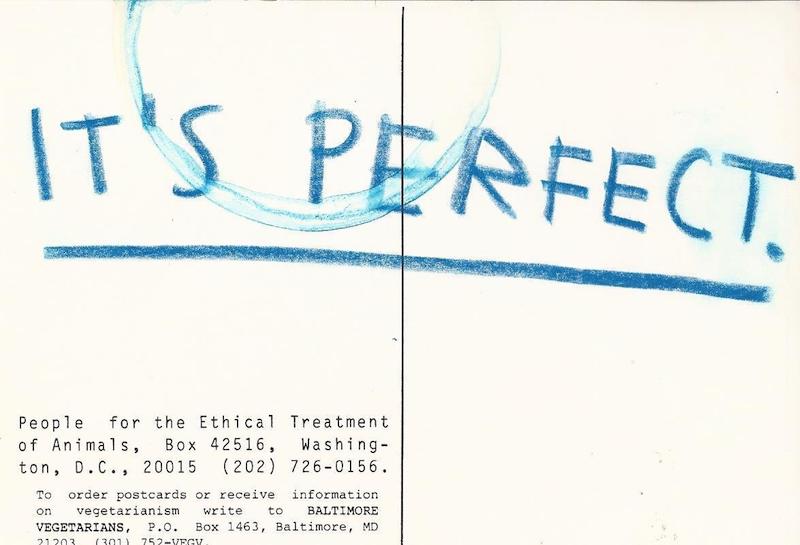
That went on for some time – with me sending these tapes in a Jiffy bag to ‘Burt Reynolds’ – that was his pseudonym – at this address in Manchester. I still hadn’t met or spoken to him. Then one day I went to put one of these Jiffy bags in the post-box in Chalk Farm and just then Morrissey walked past – a complete coincidence – I said: “Oh Morrissey, it’s Mark, this is for you” and I gave him the Jiffy bag and he went bright red. And I said: “I’ll see you in the studio next week and he said: “Yeah okay”. And the next time I saw him was in the studio at Hook End Manor and we recorded that album {Kill Uncle}.
Andrew Paresi (aka comedian Andrew McGibbon) gave a very funny account of the Hook End Manor sessions on the radio show “I was Morrissey’s Drummer” – what do you remember about that time?
I remember the first day there, because it was Andrew and Mark “Bedders” (Bedford) from Madness on bass and me in the studio. The first song we did was Our Frank. Of course, at that point I’d not heard the lyrics or anything, I’m just playing the backing track. Then eventually Morrissey goes into the vocal booth and he’s got the slap back echo like Elvis on his voice. And he starts singing “My frank and vulgar red pullover” and Mark Bedford and me are just laughing – partly because of nervous energy and partly because: “Oh look, we’re in a studio with Morrissey – it’s Morrissey’s voice coming in through our headphones!” And also because of the lyrics – there were just tears running down our faces! At the end of the song we just collapsed and Morrissey was utterly delighted by the effect it had on us.
I also remember sitting around a dinner table – we had these fantastic caterers – all vegetarian of course – it was like a medieval vegetarian banquet every night. So there was this huge table full of people and we had some guests like Suggs, or Vic Reeves would turn up and Morrissey would sit at the head of the table. And he hardly says a word. He just sits there looking like Morrissey with the quiff and the glasses. I didn’t know the rest of them and I was feeling pretty freaked out because my band had just broken up and I was feeling pretty raw and overwhelmed by everything that had happened over the last year or two, and it was just so awkward! You know when you talk to somebody who doesn’t say anything – it’s really awful – the less they say, the more you end up saying yourself and you can hear yourself talking rubbish – thinking {agonised voice} ‘What am I saying?’ it was a bit like that. It was a bonkers time, really.
Was he a difficult person to work with – I gather he often changed the structure of the songs?
Well yeah, I’d have an idea for the intro, this is the middle bit, this the chorus, this is the verse, blah, blah, blah and I’d give it to him and he’d sing everything in different places to I’d’ve imagined it, but it worked! And I think that’s part of what made his songs so unique. He doesn’t have any of the technical restraints of songcraft. I get the impression that he puts the cassette into his beatbox, gets his hairbrush and stands in front of the mirror and pretends to be a pop singer and comes up with this Morrissey melody and style. I remember {producer} Clive Langer saying {to Morrissey}: “You should just learn the guitar because then you could write all the songs on your own” and, while on one hand Clive had a point, I think it would have been very different if he had, because it would have become more formularised, it would have become more normal and less interesting.
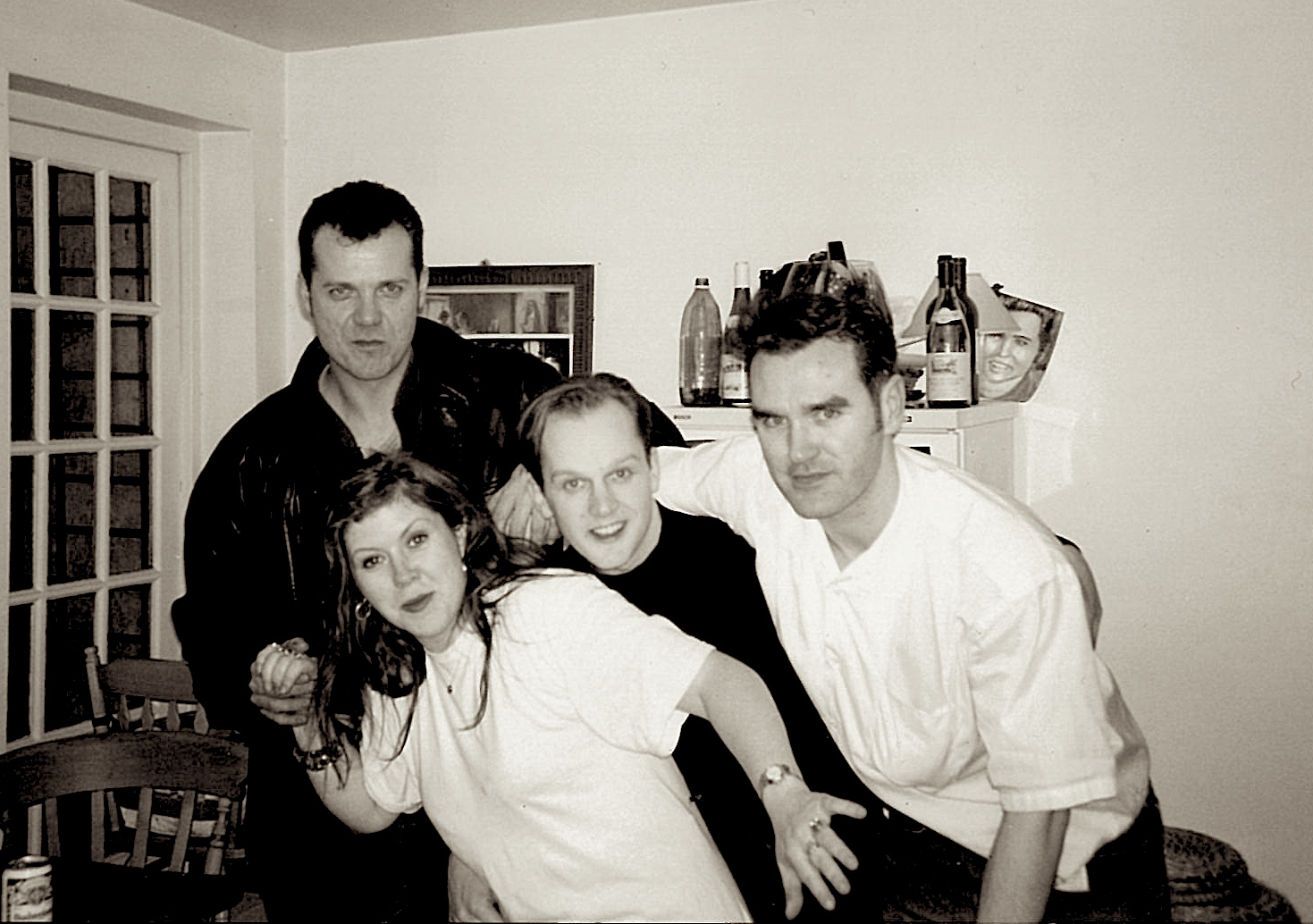
No-one ever seems to have a bad word to say about Kirsty MacColl, did you enjoy writing with her?
Well it was the same {as Morrissey} really – I was giving tracks to both of them and I’d swap them around and things (chuckles). Kirsty was a great laugh and there was an awful lot of drinking and spliffing going on. We were out of our trees! It’s difficult to remember it. We’d be in the studio all day and then we’d stay up to four or five in the morning listening to records. The milkman would be coming in as I left her house. It was a mad time. It was good fun…. And awful – both of them. Everyone was quite miserable really, quite tortured. {The resulting album Titanic Days charts the break-ops of both Mark and Kirsty’s marriages}
Tell me about the song I’m Yours you co-wrote with Ringo Starr – is it true you got invited to the recording session after popping out for a pint of milk?
I wrote a song with Mark Hudson who’s an American producer, he produced Alice Cooper, Aerosmith and all sorts of people. We wrote it down at The Castle in the south of France, which belongs to {manager of Sting/The Police} Miles Copeland – he had these events called Eight Days A Week. All sorts of songwriters would be invited to collaborate, including Carole King, who I worked with one day, which was just mindblowing. I wrote a song with Mark there and he took it back to L.A. Next thing he called me and said Ringo wants to do it, but he wants to write another verse. I never met Ringo Starr but he put a verse on the end of it and they asked me to send the guitar part over, so I sent it over to L.A where Ringo put the voice on. Then one day I was walking down the street and there’s Mark Hudson in Chalk Farm, literally right by the post box where I’d seen Morrissey. I said: “Hey what you doing?” He said: {adopts US accent} “We’re working at Air Studios, actually yeah, we’re gonna do our song tomorrow with George Martin do you wanna come?” So I went up to Air Studios the next day and walked in. And then the orchestra came and George conducted them and spent the rest of the day talking to us and it was “When we did Revolver this and when we did Sgt. Pepper that”. Fantastic!
So what was it like writing with all those legendary songwriters at Eight Days A Week?
It was mad, you know very exciting, But, when I think about it, I think about how awful I felt back then, because my life had changed so much – it was unrecognisable from what it was a year or two before. My life was very simple before, I was just a lad strumming my guitar. Suddenly I was doing these things that were like a dream come true. I’d be sitting at dinner and there’d be Carole King there and there’s Paul Carrack and there’s Paul Brady. But, also at the same time I felt very lonely and a bit scared in the middle of it all. I didn’t know anybody – there was that imposter syndrome, where you think: “Oh God, are they going to find me out”.
You seem in a much happier place as a writer and performer now?
Oh definitely! This is what I’ve been waiting for all my life! It’s great! I want to do loads of gigs. The core of the band is the same people I’ve been with for years. It’s like a family – and you can’t buy that sort of connection. They are just incredible! What I really need now is it to go up to another level in terms of audience – to be able to sell enough albums to finance the gigs. That’s the thing that needs to happen now. People have been so positive about the album that I feel really kind of energised. I’m really enjoying it!
- My Unfashionable Opinion is out now via Raresong Recordings
- Upcoming live dates include Pound Arts Centre, Corsham on April 29, Warwick Arts Centre, Coventry, May 20 and The George Inn, Warminster on 24 June.
- For more information visit Mark’s website and YouTube channel.
Here’s a LIVE taster from Mark’s album launch show at St Pancras Old Church, London, March 20, 2017
One thought on “PUNCHING ABOVE HIS WEIGHT – Mark Nevin On Bowie, Morrissey And New Solo Album My Unfashionable Opinion”